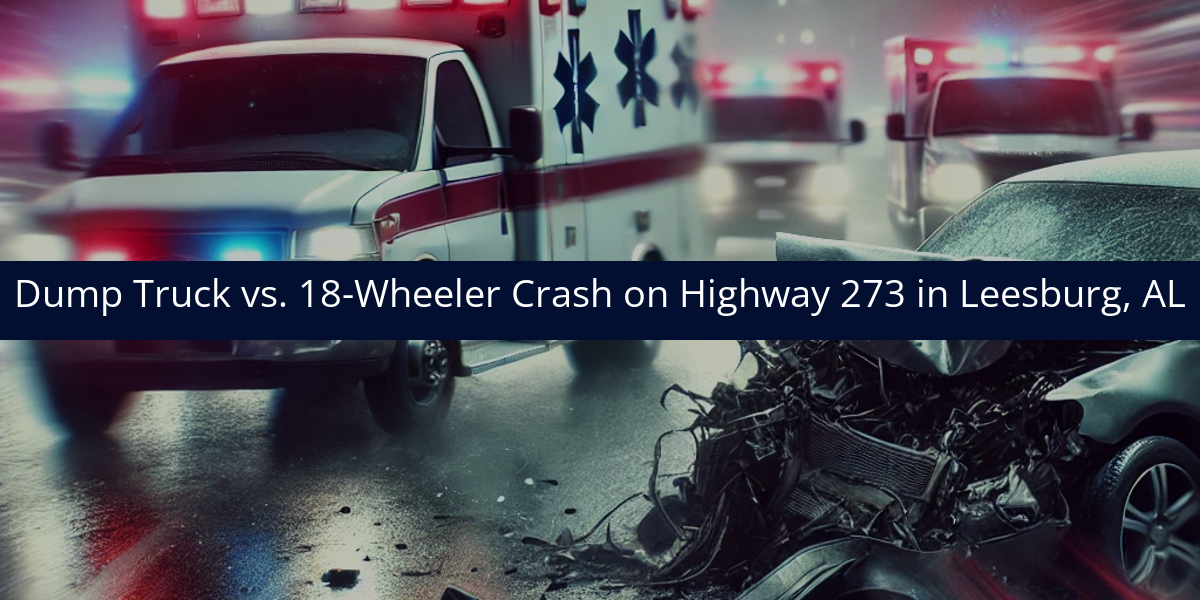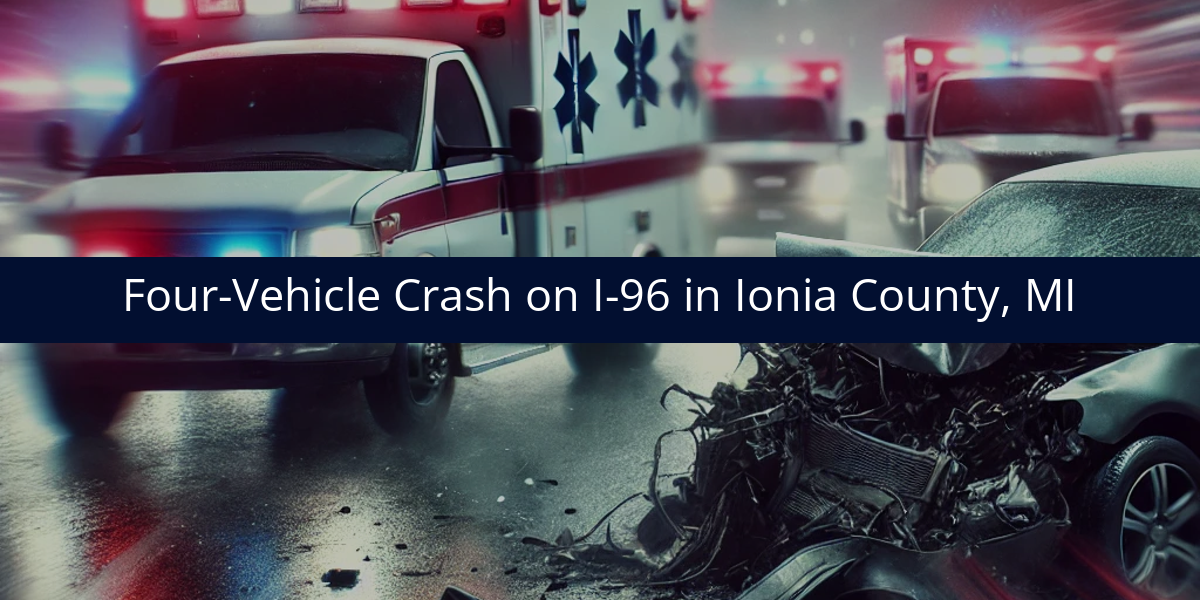After a commercial truck accident, investigators try to figure out who or what caused it and who to hold responsible. One of most important questions that investigators must determine is whether any of the drivers were intoxicated at the time of the crash. Tests are often performed to find out, but people often wonder if the test results can be used against the driver in court. Can drug and alcohol test results be used as evidence in a truck accident lawsuit?
Answer: If handled correctly and properly presented to a court, post-accident drug and alcohol test results can serve as powerful evidence in a truck accident injury or wrongful death lawsuit.
In this article, we'll talk about who tests the drivers and when, how attorneys obtain the results of those tests, and what they mean for truck accident victims and their families.
Who Tests Truck Drivers after a Truck Accident?
If a truck driver is suspected of negligently causing a serious accident, they're often tested for intoxication by law enforcement and by their employer to see if drugs or alcohol were involved. Each tester does so for different reasons, but the results of either or both tests can be useful to a truck accident attorney building a case. Let's talk about these groups conduct DUI screenings after a commercial wreck.
Law Enforcement
For one reason or another, police at the scene of a truck accident may think the truck driver was impaired at the time of the crash. To find out, they may administer field sobriety or a breathalyzer tests, which can give them enough data for reasonable suspicion. More accurate information may come from a blood draw, which is generally done at a hospital or somewhere else with qualified personnel—if police get a warrant first.
So why do they perform these tests? Because DUI is a crime, and criminal offenses are in their wheelhouse. Testing for drugs and alcohol helps ensure police can show someone was operating under the influence, and assist prosecutors in bringing appropriate criminal charges. This is especially important for commercial drivers, since they're typically operating much larger vehicles that can cause drastically more damage in an accident. They must prove beyond a reasonable doubt that the truck driver committed a crime, however, which means they need clear and hopefully-indisputable evidence like blood test results.
Employers
Trucking companies are required by the Federal Motor Carrier Safety Administration (FMCSA) to test their drivers for intoxicants before employment, after many truck accidents, and at random at least once a year. If that seems like a lot of screening, consider why each of them is necessary:
- Pre-employment: Before any driver can sign on for a position with a trucking company, he must undergo a toxicology screening for drugs and alcohol. If that driver tests positive for even trace amounts of alcohol, marijuana, amphetamines, or other intoxicating substances (including many prescriptions), they won't be allowed out on the road. An ethical trucking company knows it can't put that person in charge of a 40 ton truck, surrounded by other motorists.
- After a deadly accident: No matter who the police think was at fault, professional truck drivers must be tested for drugs and alcohol after any accident involving a fatality. This is to remove any question about whether or not substance use contributed to the wreck.
The required drug testing must happen within 32 hours of the incident, and any alcohol test within 8 hours. If the company fails to perform the tests within those time windows, it may face serious penalties for non-compliance. - After a non-fatal accident where police cited the driver: When a commercial wreck results in serious injuries or property damage and the police issued one or more citations to the semi-truck's driver, his employer must drug test that operator.
- Random tests: Realistically, employers can't and shouldn't wait until their driver causes a wreck before finding out he was intoxicated. Proactive staff screenings occasionally weed out drivers with substance problems, which means those employees can be removed from duty before they harm anyone.
It's important to note that if law enforcement secures its own toxicology tests within the required time frame, the trucking company may not have to do one of its own as well. Despite that, responsible trucking companies often do the tests anyway as a matter of best practices.
Is that a lot of testing? Maybe, but think about it: Two of those categories only happen in the aftermath of a serious accident, and drug testing just helps tell the whole story of what happened. Screening for substance abuse before and during employment also helps weed out bad actors before they have a chance to cause any such accidents.
Why Should an Attorney Get Drug Test Results for a Lawsuit?
Depending on which word you emphasize in the above question, you might actually be asking two different things—both worth discussing.
Why Should an Attorney Get Test Results?
A truck accident attorney must be able to show that the trucker was negligent, and but for that negligence the accident wouldn't have happened. Positive toxicology results can go a long way toward proving the trucker's carelessness—in this case meaning their decision to drive while intoxicated—was the proximate cause of a wreck.
Example: After a truck accident with injuries, truck driver Roscoe's blood test shows he had a BAC of .13. Witnesses say his driving before the crash was erratic, and camera footage inside the truck showed him struggling to remain alert at the wheel. In all likelihood, this combination of evidence would make a jury treat his alcohol use as the proximate cause of the accident and the victim's injuries.
Even if test results end up negative for drugs or alcohol, that's still valuable information so an attorney doesn't build a legal strategy around a wrong assumption. Speaking of lawyers, some may wonder why they need an attorney's help to use drug test results as evidence in their case—and that's where the other emphasis on the question comes in.
Why Should an Attorney Get Test Results?
Even if we assume that a plaintiff managed to get a truck driver's toxicology results (which the trucking company would try very hard to keep out of their hands), it still has to be handled correctly and submitted as evidence per the rules of the court. This usually involves a process called proving up, where whoever conducted the test also submits an affidavit verifying that the test results are genuine.
The takeaway here is that it doesn't do any good to have a test showing a trucker was drunk if a court won't allow a jury to see it. Most people aren't really up on evidentiary rules, which is why it's generally in their interests to have an experienced attorney handle things like trucker toxicology.
How Do Attorneys Get Trucker Drug Test Results?
Drug test results are often crucial to the victim's case because they can provide objective evidence of intoxication. That would strongly support claims of negligence, since the truck driver would have directly violated the law by driving under the influence.
Of course, an experienced attorney knows anything which might turn a jury against the truck driver and his employer won't be handed over willingly—why give the plaintiff free ammunition?—so the attorney will likely use a subpoena. A subpoena is a formal order from a court that requires the recipient to comply under penalty of law, and attorneys often use it to compel reluctant parties (like trucking companies) to produce evidence they otherwise wouldn't hand over.
To be clear, evidence of DWI still isn't a magic bullet that automatically wins a case. A straight line must be drawn from the substance use to the damage done, and the defense will do everything it can to make that line go crooked. Inexperienced lawyers may think a positive test result is all they need to clinch a settlement, but a solid case needs far more, like forensic accident reconstruction, expert testimony, and witness statements, among other things. Talking to the right people to get all that evidence, then assembling it into a case, is usually outside the average accident victim's abilities.
Grossman Law Can Help
It's one thing to explain why drug and alcohol tests are helpful after a serious commercial truck accident, but making use of those tests as evidence in a lawsuit is something else entirely. Most people don't know how to obtain them, let alone how to submit them in a way the courts will accept. Add to that a trucking company's ongoing efforts to delay and obstruct the case, and accident victims quickly end up over their heads—unless they get help.
The Texas truck accident lawyers at Grossman Law Offices have decades of experience assisting victims of all kinds of commercial accidents, including those caused by intoxicated truck drivers. If you were hurt or lost a loved one in a truck accident, contact Grossman Law today for a free and confidential consultation. We are available 24/7.













